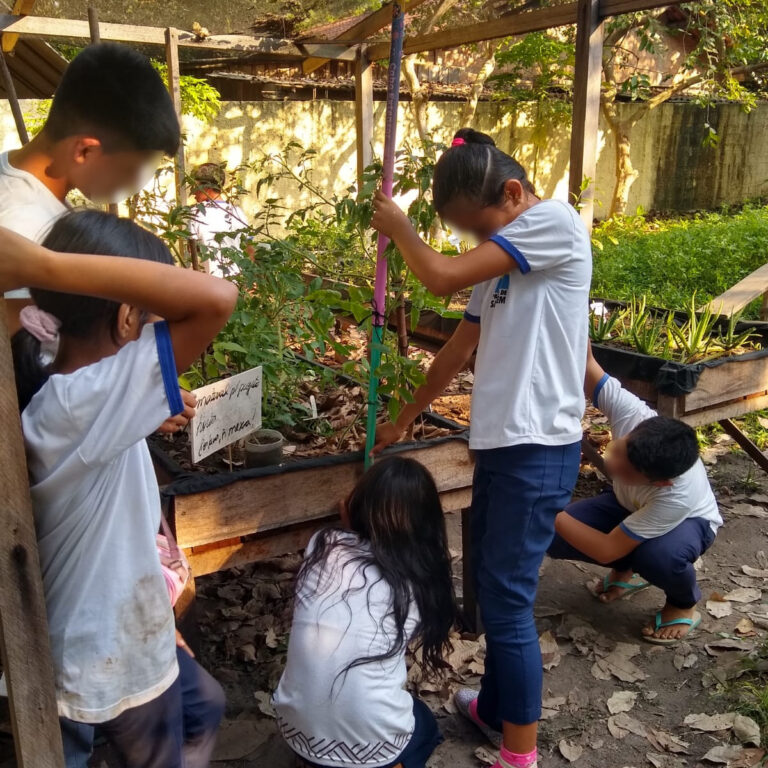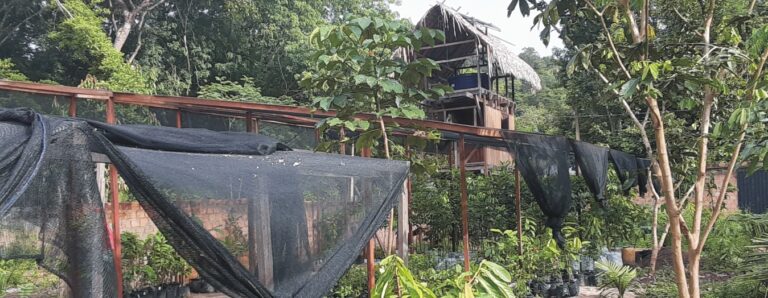ACRAA Updates
ACRAA Overview and Operational Plan (2024) The attached document presents and overview of ACRAA along with our operational plan (latest edits August 2024). PRIVACY AND DATA USE POLICY RIGHT TO DATA PRIVACY Rua Everaldo Martins, s/n., Bairro Carauari, Alter do Chão, Santarém-PA. CEP 68109-000 contact@acraabrazil.org CNPJ: 50161.510/0001-19 Instagram
Biographies
Professional Biographies ACRAA Management Team Katiane Araújo Lourido Degree in Full Licentiate in Biological Sciences from the Federal University of Western Pará/UFOPA (2016). Master’s in Environmental Sciences, in the area of concentration of bioprospecting of natural products – UFOPA. Experience in extraction and bioactivity of essential oils. Teaching Science and Biology and environmental education. Katiane is also the lead instructor and manager of ACRAA’s “ACRAA in the Schools” environmental education program. She is also a founding member and the current President. Diêgo Figueiredo de Siqueira Simplício Email: diego@acraabrazil.org Diêgo Figueiredo is a Brazilian lawyer, holding a Law degree from the University of Triângulo Mineiro (UNITRI, 2012) and registered with the Brazilian Bar Association (OAB/MG) under number 148.062 (2013). His professional training includes four years of internships across three different institutions: the Public Prosecutor’s Office in Cláudio-MG (civil law), the UNIFENAS Legal Assistance Center in Poços de Caldas-MG (also civil law), and the Public Defender’s Office of…
ACRAA Volunteers
ACRAA Volunteers This page is dedicated to acknowledging and thanking those people that have volunteered their time in ACRAA’s nursery and in assisting in our day-to-day activities. The photos show our volunteers at work, and are presented with the most recent first – click on each to see the full-sized image. However, not included here are the many other volunteers that have stepped forward and helped at our planting and other events – to these people we say thank you very much as well. Many of these people can be seen in photos on our project pages. A special thanks to Waldeir, ACRAA’s Professional Forester, for organizing students from UFOPA (The Universidade Federal do Oeste do Pará, Santarém), to help us at ACRAA. A big thank you to Daki as well for giving her Sundays to lead our weekly Volunteer Day at ACRAA. Comandá seedling ready to be potted. July…
Carbon Analysis
Carbon Footprint Analysis In this section we discuss the “carbon footprint” associated with travelling to the amazon to participate in our (near future) reforestation tourism program [1][2]. But at the outset here, to those that would immediatey scoff at such proposition simply because, yes, this does involve air travel, we respectfully argue — you do not undertsatnd the bigger picture here. Understand the amazon region is extremely economically depressed [3]. Even before the pandemic this was the case, but now it is much worse. As a consequence there are some here in Brazil calling for much higher levels of resource extraction (minerals, logging) and expansion of industrial agriculture (esp. soya). And this is occuring – with record rates of deforestation seen in 2022. See this recent article in Guardian. And this will continue to increase, unless we find alternate “green” forms of economic development. We see our reforestation tourism initiative…
Agroforestry
Agroforestry A basic definition of “agroforestry” is farming systems whereby trees and shrubs specifically selected for their ability to produce food, wood or other wanted products, are incorporated with agricultural crops and/or animals in a spatial and/or temporal manner (note that shade is also a valuable function of trees in agroforestry systems). The benefits of such systems over purely “un-treed” agricultural production are numerous, and include increased biological and economic resiliency, increased biodiversity, and carbon sequestration and storage. Incorporating trees into agricultural systems can also improve soil fertility and help heal degraded lands. See how here. We feel this science must be part of forest restoration efforts in the amazon, as forests that can sustain families and communities are needed to address food and economic security locally and regionally. Some, as in a recent article in the Guardian, have gone as far as to say that larger-scale reforestation (such as,…




